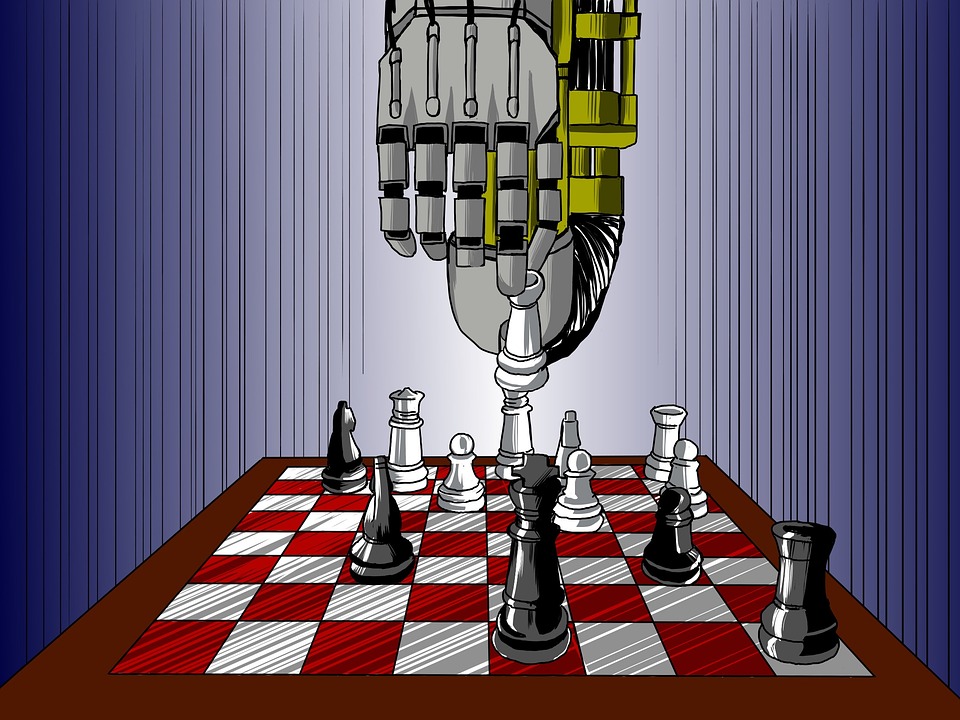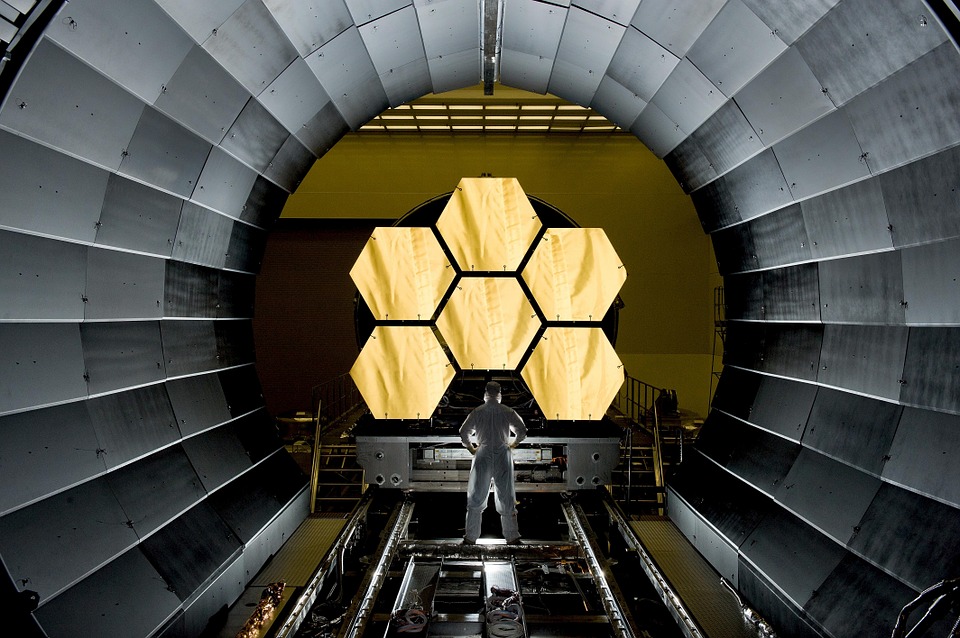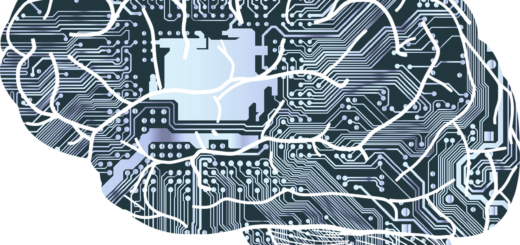Why AI? – Part 1

With the emergence of any powerful, influential technology, it’s important to ask ourselves and its creators why it exists, what purpose it serves and what consequences it may lead to in the future. AI is undoubtedly the most important technology being developed in modern times, able to dramatically change our professional and social landscape in various ways, therefore we should ask not only “how does it work?” and “how do we improve it?”, which appear to be the main topics at the moment, but also “why does it exist?” and “what are its ultimate objectives?” These questions will help us understand the effects the technology will have on our lives and will give us more agency in shaping the futures we desire.
These questions are especially important in AI, because it, like no other globally popular technology before it, has brought hand-in-hand with its promises of an amazing new future the possibility of human extinction. Statements like “AI may wipe out humanity” are casually thrown about, not only by paranoid extremist bloggers or our conservative relatives living in faraway lands but by geniuses and millionaires alike, highlighting the question of “well then… why?” If the potential costs are so great, what could possibly be a good enough benefit to propel this risk forward?
The other day I attended an Artificial Intelligence event and asked a group of young attendees their thoughts on this subject. Specifically, I asked them – “why are you, and why do you think other people are, so interested in AI?” Their answers summarize what I believe are some of the most common responses to this question. I’m going to add them to a growing list of reasons titled: “Why AI?”
Here are the first 5:
- Because AI is the future and if we want to be relevant and find work we have to be well-versed in it
- Because humanity constantly strives to make things easier and more convenient and AI allows us to do just that in the most effective way possible
- Because AI will save businesses tons of money and that’s a primary objective for any CEO who wants to stay afloat in a competitive market
- Because the optimization of any project (and therefore growth and development in general) relies on having the best possible tools to do it with, and AI is the best tool there is
- Because people want to play God
In this blog post I will explore the first 3 in a bit more depth, and in the follow-up blog post I will write about the last 2. If you would like to contribute a reason to this list, please comment below or on the facebook post.
 1. AI is the future and we have to be ready
1. AI is the future and we have to be ready
AI is indeed the future, a future that has been in the making for the past 70 years, laying its foundations and building up. It began in the 1950s with Alan Turing, and after some bumps in the road that led to the infamous AI winters during which funding and interest plummeted, at the moment it seems to be going strong. AI is being introduced into a growing number of fields from medicine and law to autonomous driving to personal assistance, smartphones and more. Its ability to “learn” and the vast amounts of data now available to “teach” it means that it is constantly improving. And once it improves enough to take the job you studied for at university, you’re going to have to quickly adapt and find a new role in an AI-driven society. It is therefore definitely a good idea to keep track of how AI is developing and what changes it is leading to. Those who can understand and program AI will have a lot of power and control in a future where AI has created an important presence in numerous fields and AI-related skills will be in great demand. But this still leaves the question as to why AI has become so popular and what its creators’ ultimate objectives are.
 2. AI effectively achieves heightened comfort and convenience
2. AI effectively achieves heightened comfort and convenience
Humans <3 speed and convenience. We love saving time, money and effort and anything that allows us to do that is highly appealing. What did we do before GPS and online shopping? How did we manage without voice-controlled personal assistants and scheduled reminders? Convenience has become so intrinsic to the modern world that simple tasks we did a mere 20 years ago now seem like a huge hurdle to overcome should our batteries die or the power go out. Drive thrus, remote controls, microwave dinners, clap on lights, anything you see on infomercials, etc. – if it’s convenient and feasible, it’s on the market or coming soon. But sometimes the search for ultimate convenience can cross a line that makes you say, really? Was it so difficult to type a 6 digit password or draw a simple design in order to access our private phones that we had to opt for fingerprint recognition? And was it then such a time-wasting struggle to place our thumbs on a fingerprint sensor and wait .6 seconds for it to open that millions of people replaced their old iphone with one that has facial recognition? How tiny can the added convenience value become and still continue to capture the hearts and paychecks of the public? How much money and scientific effort go into creating technology that will cater to our superficial whims? And perhaps the biggest question – what are we giving up in order to satisfy this search for ultimate convenience? How much personal information are we willing to sacrifice so that we can save .4 seconds of our time or add another app to our collection?
 3. AI will save businesses tons of money
3. AI will save businesses tons of money
Yes, it will, but at what cost to society? AI will save businesses money because it will eliminate the need to train, pay and cater to a human workforce. In other words, and I know you’ve heard this a million times before, it will take many people’s jobs. One of the people I spoke with at the AI event scoffed at this. “Did horses take the jobs of people pulling carts around?” he said. Well, yes, they did, but I see his point. During the industrial revolution many jobs were “taken” by machines but they were very unpleasant and even dangerous jobs that people hated doing. However, people did this unpleasant work because they needed money and purpose. Working meant being a productive member of society and a provider for the family which gave people a sense of autonomy and control.
But new ways of creating goods and services during the industrial revolution actually created many new jobs. However, in this new revolution, it’s hard to think of a similar number of new jobs being created when most of the existing low-qualified work – both physical and cognitive – will be done by robots. Sure, new jobs for engineers and programmers will open up, jobs requiring great creativity and artistic skill may stick around. But the majority of the population isn’t qualified to do that kind of work, nor do they have the potential to become qualified in it. What will happen to those people? They also need a reason to get up in the morning and to feel the satisfaction of providing for their families through personal effort and not government handouts. However, this kind of charity – humoring people by letting them play robot so they can earn money when it would be much more efficient to use a machine – seems like a foolish reason to hold back progress.
But that’s why the question arises – what is the objective of AI on a larger scale? What is it aiming to accomplish in the long run? Because if its purpose is to improve people’s lives, then we must seriously think about the psychological and economic consequences that will accompany the loss of millions of jobs. Many say (like the CEO of a chatbot company at a conference I attended this week) – “but robots will take boring jobs, leaving people to invest their time doing things they like”. But…what exactly does that mean? To be honest, this common argument sounds somewhat childish. Adults have more complex needs and motivations than simply playing video games all day, drinking frappuccinos and visiting Disney World on the weekends (don’t they? This is up for discussion.). And of course, I understand the appeal of a life full of exotic travel, tropical resorts and fancy parties. But let’s be honest, whatever payment structure is created to support the people who lose their jobs to robots will not be conducive to a very high quality lifestyle that would satisfy the need for stimulation of the average person. So what exactly will people do with all the extra time they’ll save from not working and with the limited resources they’ll have for investing in the consumption of products made by their robot replacements? Will they feel happy, fulfilled and confident while not working or contributing? Will this arrangement increase the wellbeing of society as a whole or will it create an even bigger gap between a highly successful populace that controls the machines and make tons of money and the under-qualified people who are pacified with government handouts and cheap, mind-numbing entertainment tactics? The realistic prospects feel less utopian and more Black Mirror-esque at the moment, but who knows, hopefully as people begin addressing these topics more and more, better solutions will arise.
That concludes my initial thoughts on the first 3 reasons given to the question of “Why AI?” If you would like to contribute to this discussion or submit further reasons to be included in the list, please comment below or under the facebook post. This is a long topic and there’s much to say about it, but what’s important is beginning to think and talk about the various possibilities that accompany new tech like AI so that we can be prepared for the different scenarios that may one day become reality and have ideas ready about how to approach them. I hope this site and its facebook page can become a forum for discussion on these topics. As always, thank you for reading.




Recent Comments